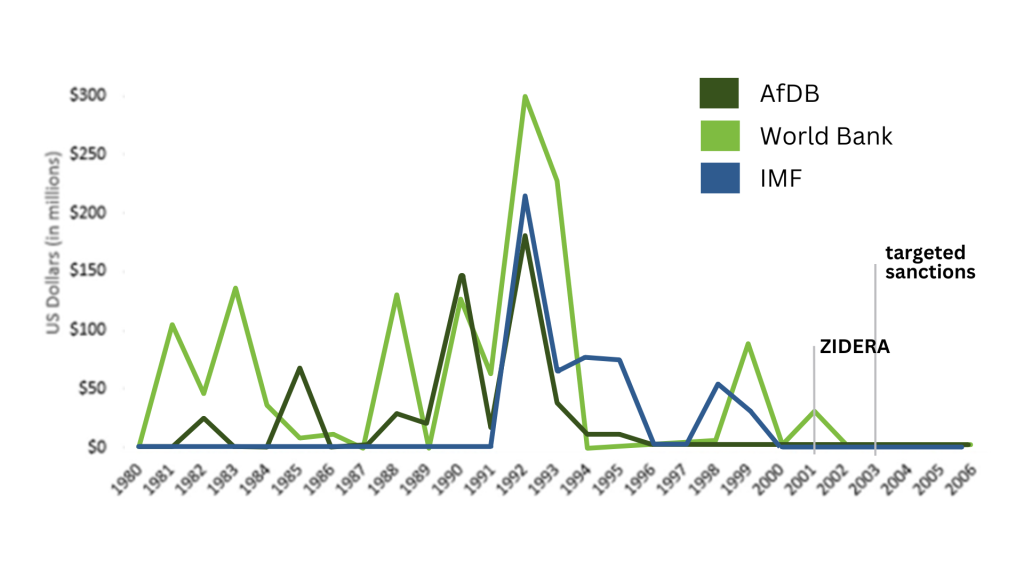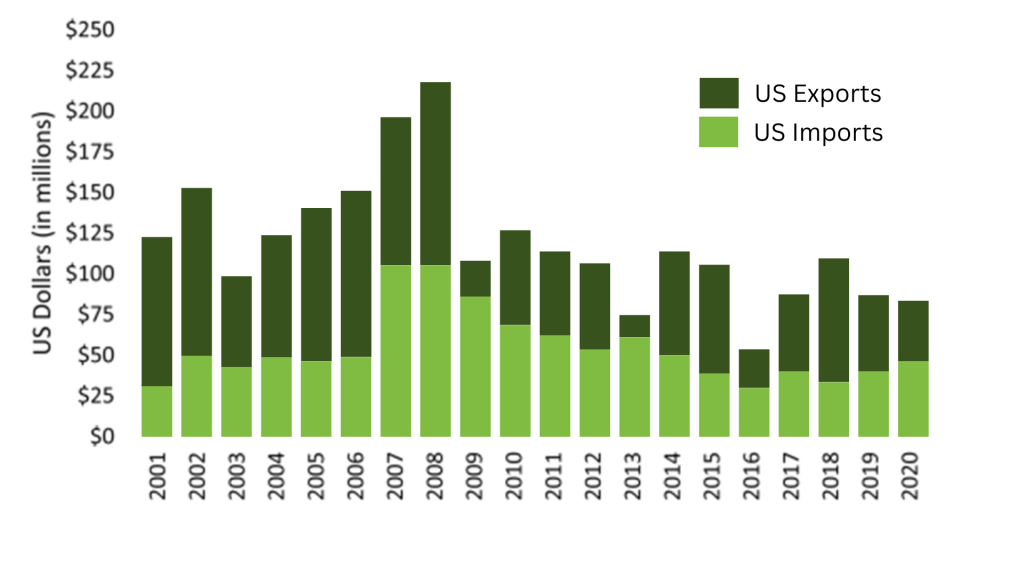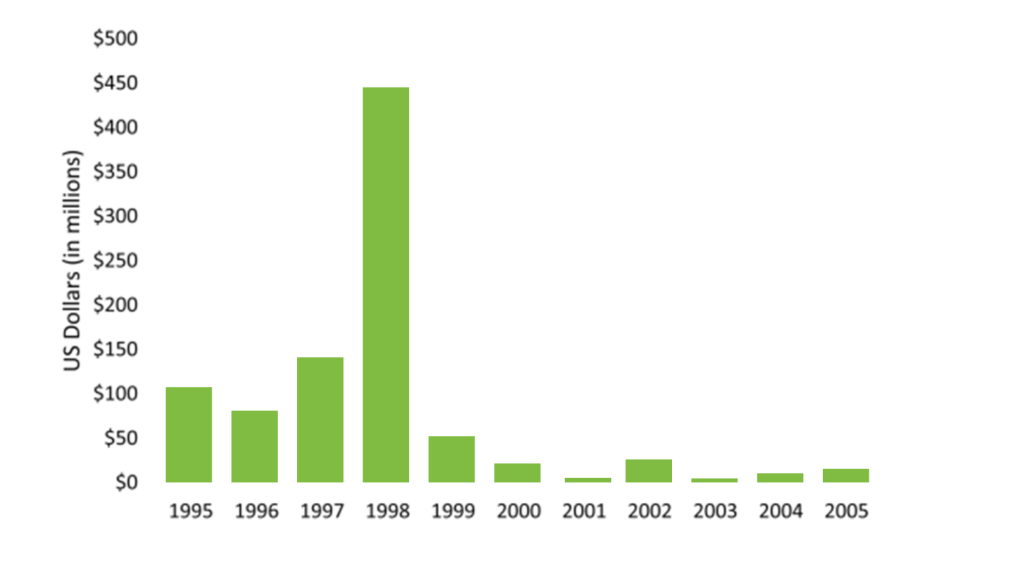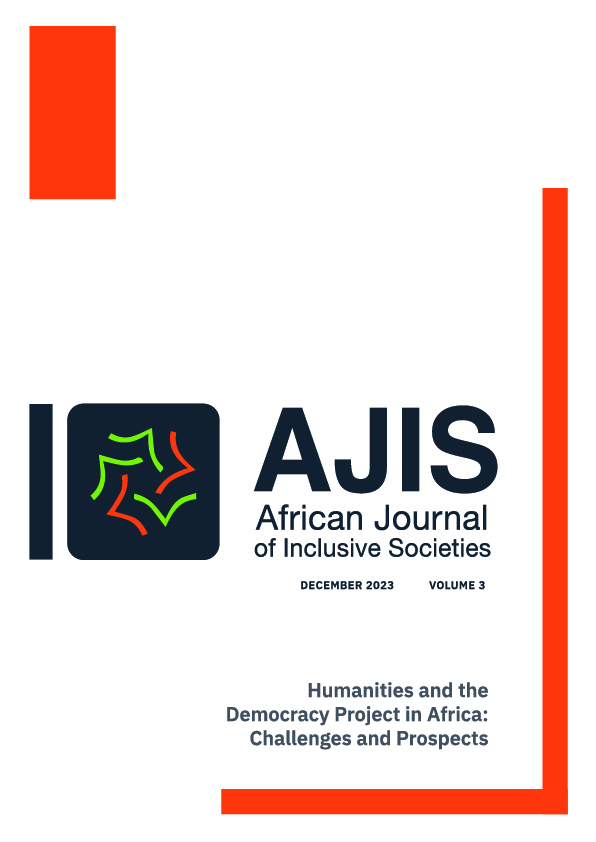Key words: Economic crisis, economic stability, colonial legacies, corruption, economic sanction
BACKGROUND
Zimbabwe’s economic struggles have been a subject of debate for years, with the ruling party, Zimbabwe African National Union-Patriotic Front (ZANU-PF), often attributing the country’s woes to external factors such as sanctions. However, it is essential to critically examine the internal dynamics that have played a significant role in hindering economic growth. Zimbabwe is a landlocked country in Southern Africa that gained its independence from Britain in 1980. Since then, the country has faced multiple challenges in governance and development, such as political instability, economic decline, social unrest, and human rights violations. Zimbabwe has also been subject to various sanctions from different actors, such as the United States of America (USA), the European Union (EU), and the United Nations, for its alleged violations of democracy, human rights, and the rule of law. These sanctions have had significant impacts on Zimbabwe's economy and society, affecting its trade, investment, aid, and debt.
However, sanctions are not the only factor that explains Zimbabwe's economic challenges. The country's economic performance and prospects are also influenced by other factors, such as historical legacies, institutional weaknesses, governance failures, and regional and global dynamics. For instance, Zimbabwe inherited a dual economy from its colonial past, characterised by a large informal sector and a small formal sector. The informal sector accounts for about 60% of the country's Gross Domestic Product (GDP) and employs about 80% of the labour force (Irshad, 2023). The informal sector faces many challenges, such as low productivity, poor infrastructure, limited access to finance, and lack of social protection (Duma, 2023). The formal sector, on the other hand, has been shrinking due to deindustrialisation, corruption, policy uncertainty, and macroeconomic instability (Mujeri, 2023).
Furthermore, Zimbabwe's economic challenges have also been influenced by its regional and global environment. Zimbabwe is part of the Southern African Development Community (SADC), a regional bloc that aims to promote economic integration and cooperation among its members. However, Zimbabwe's relations with some of its neighbours have been strained due to various issues, such as migration, trade disputes, border conflicts, and water sharing (World Bank, 2021). Zimbabwe has also faced challenges in re-engaging with the international community and seeking support from multilateral agencies, such as the World Bank and the International Monetary Fund. Zimbabwe has accumulated a large external debt of about $8 billion (World Bank, 2021), which limits its access to concessional financing and debt relief.
This paper aims to analyse Zimbabwe's economic challenges beyond sanctions. It will examine how sanctions have affected Zimbabwe's economic performance and prospects compared with other countries in the region and the world. It will further explore the other factors that have contributed to Zimbabwe's economic difficulties and how they can be overcome. It will use a mixed-methods approach, combining quantitative data from surveys and indicators with qualitative data from interviews and document analysis. It will employ a political economy framework to analyse the underlying causes and consequences of Zimbabwe's economic challenges.
METHODOLOGY
This study adopted a qualitative approach, collecting data from a diverse range of sources including journal articles, books, newspaper articles, and speeches from governmental officials both online and during pressers. The research synthesised existing knowledge on key economic indicators such as growth, inflation, unemployment, poverty, and trade. The qualitative data encompasses both published and unpublished interviews and document analyses from key stakeholders, including government officials, civil society organisations, business leaders, and ordinary citizens. The study delved into the historical, political, and social factors that have shaped Zimbabwe's economic trajectory and governance system. By examining these dimensions, the research aimed to uncover the complex interplay of factors contributing to the current economic situation in the country. The methodology involved a detailed document analysis, where various sources were critically examined to extract relevant information. This included analysing policy documents, government reports, and academic literature to understand the broader context of Zimbabwe's economic issues. Additionally, the study incorporated insights from interviews with key stakeholders, providing a nuanced perspective on the challenges and opportunities facing Zimbabwe.
The authors used a desktop approach for this study, which involved collecting and analysing data from existing sources rather than conducting new fieldwork. This approach was justified for several reasons. Firstly, a vast amount of relevant data and literature on Zimbabwe's economic issues is readily available through online databases, libraries, and official publications. This made it feasible to gather comprehensive information without the need for extensive fieldwork. Secondly, conducting fieldwork, especially in a country with significant logistical and political challenges like Zimbabwe, can be costly and time-consuming. The desktop approach allowed the researchers to efficiently utilise available resources and complete the study within a reasonable timeframe. Thirdly, by analysing a wide range of existing documents and reports, the study was able to incorporate diverse perspectives and insights from various stakeholders, including those who might be difficult to reach through direct interviews. Lastly, understanding the historical, political, and social factors influencing Zimbabwe's economy requires access to historical documents and records, which are often best accessed through desktop research. By employing a desktop approach, the study was able to provide a thorough and well-rounded analysis of Zimbabwe's economic challenges and potential solutions. This methodology ensured that the research was both comprehensive and efficient, leveraging existing resources to offer valuable insights into the complex economic landscape of Zimbabwe.
THEORETICAL FRAMEWORK
The paper adopts a political economy perspective to investigate the economic challenges that Zimbabwe faces beyond sanctions. Political economy is an interdisciplinary approach that studies the interplay between politics, institutions, and economic outcomes. It considers how political actors, interests, and power structures shape economic policies and processes, and how economic factors influence political behaviour and institutions (Kohn, 2021). The paper draws on the literature on the political economy of development, which examines the causes and consequences of economic growth and development across countries and regions.
This literature explores how different factors, such as history, geography, culture, institutions, governance, and external influences affect the development trajectories and performance of different countries (Renelt, 1991).
The paper also utilises the literature on the political economy of sanctions, which investigates the effects and effectiveness of sanctions as a foreign policy tool. This literature examines how sanctions affect the target country's economy, politics, and society, and how the target country responds to sanctions through various strategies, such as compliance, defiance, adaptation, or evasion (King & Fullerton, 1984). The paper applies these theoretical insights to the case of Zimbabwe, a country that has faced multiple sanctions from different actors since its independence in 1980. The paper examines how sanctions have impacted Zimbabwe's economic situation and prospects, and how Zimbabwe has coped with sanctions through various political and economic reforms. The paper also explores the other factors that have contributed to Zimbabwe's economic challenges beyond sanctions, such as historical legacies, institutional weaknesses, governance failures, and regional and global dynamics.
The effects of sanctions on Zimbabwe's economic performance and prospects
Sanctions have affected Zimbabwe in various ways, both directly and indirectly. According to some estimates, Zimbabwe has lost more than $150 billion due to sanctions imposed by the European Union and countries such as the United States following reports of election rigging and human rights abuses in the early 2000s (Mabvunga, 2023). These sanctions have restricted Zimbabwe's access to trade, investment, aid and debt relief, as well as its participation in regional and global markets. Sanctions have also contributed to Zimbabwe's isolation from the international community due to its reputation as a risky destination for business and tourism.
According to Brett (2005), Zimbabwe's economic challenges have been exacerbated by its poor governance system, which has been marked by authoritarianism, violence, patronage, and repression. The ruling party, ZANU-PF, has dominated the political scene since independence and has faced little opposition or accountability (Rwodzi, 2024). The party has used its control over the state apparatus to pursue its own interests and agendas, often at the expense of the majority of Zimbabweans. The party has also violated the human rights and freedoms of its citizens, especially those who oppose or criticise it. The party has also failed to implement meaningful political and economic reforms that could address the country's structural problems and improve its development outcomes. The failed implementation of the economic policy reforms includes the land reform program which aimed to redistribute land from white commercial farmers to black Zimbabweans and was poorly executed. The lack of clear policies and support for new farmers led to a decline in agricultural productivity and food security (Africa Check, nd). In addition to this, the Indigenisation and Economic Empowerment Act, a policy that required foreign-owned companies to cede 51% of their shares to local Zimbabweans was substantially abused by political elites and this economic policy deterred foreign investment and led to economic stagnation due to the lack of clear implementation guidelines and the perception of expropriation.
Despite numerous promises, ZANU-PF has failed to effectively tackle corruption using the Anti-Corruption Measures which have been put in place by the ZANU-PF government. High-profile corruption cases often go unpunished, and there is a lack of transparency and accountability in government operations as highlighted in the Daily Maverick (2023, September 19). Politically, ZANU-PF has resisted implementing reforms to ensure free and fair elections. Issues such as voter intimidation, manipulation of voter rolls, and lack of transparency in the electoral process have undermined the credibility of elections (Daily Maverick, 2023). On the other hand, the government of Zimbabwe has not effectively diversified the economy beyond agriculture and mining. This has made the economy vulnerable to external shocks and limited job creation and economic growth (Change Radio Zimbabwe, 2023). Efforts to reform the bloated and inefficient public sector have been inadequate. The public sector remains overstaffed and underperforming, draining public resources that could be used for development (Change Radio Zimbabwe, 2023). These failures have contributed to Zimbabwe's ongoing economic challenges and hindered its development prospects.
Furthermore, Zimbabwe's economic challenges have been influenced by its regional and global environment. Zimbabwe is part of the Southern African Development Community (SADC), a regional bloc that aims to promote economic integration and cooperation among its members. However, Zimbabwe's relations with some of its neighbours have been strained due to various issues, such as migration, trade disputes, border conflicts, and water sharing (BBC News, 2019). Zimbabwe has also faced challenges in re-engaging with the international community and seeking support from multilateral agencies, such as the World Bank and the International Monetary Fund. Zimbabwe has accumulated a large external debt of about $8 billion (Mabvunga, 2023), which limits its access to concessional financing and debt relief.
Sanctions have affected Zimbabwe's economic performance and prospects in negative ways, but they are not the sole cause of its economic challenges. Zimbabwe also faces other factors that hinder its economic growth and development, such as historical legacies, institutional weaknesses, governance failures, and regional and global dynamics. To overcome these challenges and improve its economic performance and prospects, Zimbabwe needs to implement political and economic reforms that respect the rule of law, human rights, and social justice. It also needs to engage in regional and international cooperation to foster peace, security, and economic integration.
The political and economic strategies implemented by Zimbabwe to cope with sanctions and address its economic challenges
The Transitional Stabilisation Programme (TSP) (October 2018–December 2020), aimed to stabilise the macroeconomic environment, restore fiscal and monetary discipline, liberalise the foreign exchange market, restructure the public sector, and improve the business climate (Mavaza, 2020). The National Development Strategy 1 (NDS1) (2021–2025), is the current policy framework that seeks to achieve inclusive and sustainable economic growth, social development, and poverty reduction. The NDS1 focuses on six key areas: governance, macroeconomic stability and financial re-engagement, inclusive growth, human capital development, environmental protection and resilience building, and international engagement and re-engagement (Chidoko, 2023).
The Political Actors Dialogue (POLAD), is a platform for dialogue and cooperation among various political parties and stakeholders in Zimbabwe. The POLAD was initiated by President Mnangagwa after the disputed 2018 elections and aims to promote peace, unity, and national development. The POLAD has established thematic committees to address various issues, such as governance and legislative reforms, economic development, social welfare, media reforms, and international relations (Noyes, 2020). These reforms have shown some positive results, such as reducing inflation, increasing foreign currency inflows, improving public service delivery, and enhancing regional and international cooperation. However, they have also faced some challenges and criticisms, such as lack of transparency, accountability, and participation; resistance from vested interests; inadequate resources and capacity; and persistent sanctions from some countries. Therefore, Zimbabwe needs to continue implementing these reforms comprehensively and consistently to cope with sanctions and to address its economic challenges.
Other factors that have contributed to Zimbabwe's economic difficulties
Decrease in multilateral financial institutions' allocations to Zimbabwe.
The statistics provided by the Reserve Bank of Zimbabwe from 1980 to 2006 show the relationship between multilateral institutions such as the International Monetary Fund (IMF), World Bank and African Development Bank (AfDB). Zimbabwe enjoyed a significant balance of payments. However, RBZ stated that everything started to change in early 2000 when the EU and USA declared sanctions on Zimbabwe. As we look further at the RBZ data, multilateral institutions suspended their support way back in 1998 and 1999. The decline is due to the failure of the government of Zimbabwe to service its debt. The information corresponds with the interviews conducted with one of the key informants who stated that the economic crisis started way before 2000 due to the government's failure to pay its debts.

Figure 1: Multilateral financial institutions allocations to Zimbabwe, 1980–2006
Source: Reserve Bank of Zimbabwe (2007)
Institutional weaknesses
Zimbabwe suffers from weak institutions that undermine the rule of law, accountability, and transparency. The country ranks low on various governance indicators, such as control of corruption, government effectiveness, regulatory quality, and political stability (Muronzi, 2022). The country also faces challenges in enforcing contracts, protecting property rights, resolving insolvency, and registering businesses. These institutional weaknesses discourage investment, innovation, and competition in the economy.
Targeted sanctions and trade
The data from the Reserve Bank of Zimbabwe demonstrates that the US has maintained a significant trade relationship with Zimbabwe, despite sanctions. In 2020, the US exported goods and services worth nearly $45 million to Zimbabwe, while Zimbabwe's exports to the US totalled approximately $35 million (Reserve Bank of Zimbabwe, 2021). This suggests that trade between the two nations has continued, albeit with some restrictions. Additionally, the US has also proffered significant humanitarian aid, totalling $1.4 billion from 2001 to 2010 and over $2 billion in humanitarian assistance and development programs since 2010 (Ndakaripa, 2021). Similarly, according to Nyoni (2019), the European Union has imposed targeted sanctions on Zimbabwe, prohibiting the sale of arms and related materials, while also providing humanitarian aid through non-governmental organisations. However, the sanctions are targeted because they hold the ruling elite accountable and disrupt the illicit financial networks that perpetuate corruption and repression (Chingono, 2010). By targeting companies like Sakunda Holdings, which has been linked to regime insiders, sanctions can limit access to resources that fuel human rights abuses (US Department of State, 2022).
The sanctioning of key economic companies, such as Zisco Steel, Chemplex Holdings and Zimbabwe Fertilizer Company, has disrupted Zimbabwe's agricultural production, worsening food insecurity nationwide (Hupile, 2021). Unfortunately, humanitarian exemptions have fallen short, failing to adequately alleviate the crisis. This has resulted in devastating consequences for vulnerable populations, highlighting the need for a reassessment of targeted sanctions and exploration of alternative solutions to support democratic reforms without harming the broader population.

Figure 2: The trade relations between the United States of America and Zimbabwe
Source: Reserve Bank of Zimbabwe (2021)
The decrease of the Foreign Direct Investment
The data proffered by the Reserve Bank of Zimbabwe in 2006 indicates that sanctions were pushing negative publicity by portraying Zimbabwe as a risky investment destination. The RBZ further highlighted that Foreign Direct Investment (FDI) inflow declined drastically from USD 444.3 million in 1998 to just 3.8 million registered in 2003 when the sanctions started to hurt Zimbabwe (Ndakaripa, 2021). The decline of FDI is responsible for the economic challenges that Zimbabwe is currently facing.
However, it should be highlighted that the FDI has been declining since the 1990s when the Economic Structural Adjustment Programs were adopted in Zimbabwe (Ndakaripa, 2021). From the above, it is clear that the FDI inflow has been below USD 50 million from the period of 2000 to 2006. The situation changed in 2009 due to the formation of the Government of National Unity (GNU). Zimbabwe obtained almost USD 745 million in FDI inflow due to the change of government. Most of the investors were banking their hopes on the change of government. However, in 2019, the FDI decreased to USD 280 million, when it became clear that the political environment was still unpredictable and unstable. Since 2009, there has been an increase in FDI although it is still low.

Figure 3: Foreign Direct Investment inflows in Zimbabwe
Source: Reserve Bank of Zimbabwe (2007)
POSSIBLE REFORMS AND ACTIONS
To overcome these factors and improve its economic performance and prospects, Zimbabwe needs to implement political and economic reforms that respect the rule of law, human rights, and social justice. It also needs to engage in regional and international cooperation to foster peace, security, and economic integration.
Political reforms: Zimbabwe needs to undergo a democratic transition that respects the will of the people and ensures free and fair elections. It also needs to strengthen its institutions and processes that uphold the separation of powers, checks and balances, and civic participation. It also needs to protect the human rights and freedoms of its citizens and ensure accountability for past abuses.
Economic reforms: Zimbabwe needs to stabilise its macroeconomic environment by reducing inflation, restoring fiscal and monetary discipline, liberalising the foreign exchange market, and resolving its debt crisis. It also needs to diversify its economy by promoting sectors such as manufacturing, tourism, mining, and agriculture. It also needs to improve its business climate by simplifying regulations, enforcing contracts, protecting property rights, and fighting corruption.
Social reforms: Zimbabwe needs to invest in human capital development by improving access to quality education, health care, social protection, and food security. It also needs to address the social inequalities and vulnerabilities that affect women, youth, minorities, and rural populations. It also needs to enhance its resilience to shocks such as droughts, floods, pandemics, and conflicts.
Regional and international cooperation: Zimbabwe needs to resolve its outstanding issues with its neighbours and strengthen its ties with other African countries and organisations. It also needs to re-engage with the global community and seek support from multilateral agencies for its development agenda. It also needs to comply with international norms and standards on human rights, trade, environment, and security.
CONCLUSION
Sanctions have had impacts on Zimbabwe's economy and society, affecting trade, investment and debt, but they are not the sole cause of Zimbabwe's economic woes. This research has highlighted that poor governance, weak institutions and corruption are responsible for economic challenges. In addition, the inability to borrow from financial institutions, for instance, has more to do with bad debt than sanctions.
To prudently solve Zimbabwe's economic challenges, it is important to consider a multifaceted approach that involves both domestic and international efforts. This may include implementing economic reforms, improving governance, and addressing human rights concerns. The African Union and the Southern African Development Community are integral in fostering behaviour change and persuading the Zimbabwean government to prioritise democratic reforms and human rights. Complementary processes that encourage behaviour change and enable the eventual lifting of sanctions are critical to support Zimbabwe's economic recovery and foster sustainable stability.
REFERENCES
Brett, E. A. (2005). Authoritarian patrimonialism and economic disorder: the politics of crisis and breakdown in Uganda and Zimbabwe. Unpublished mimeo. London: Crisis States Research Centre, London School of Economics and Political Science.
Change Radio Zimbabwe. (2023, July 24). Zimbabwe's challenges: Suffering prolonged ZANU-PF rule and violence - A call for positive change. https://changeradiozimbabwe.com/2023/07/24/zimbabwes-challenges-suffering-prolonged-zanu-pf-rule-and-violence-a-call-for-positive-change/
Chidoko, C. (2023). Post-independence Reforms and Policies in Zimbabwe. In: Mhlanga, D., Ndhlovu, E. (eds) Post- Post-Independence Development in Africa. Advances in African Economic, Social and Political Development. Springer, Cham.
Daily Maverick. (2023, September 19). Warfare state: Why Zimbabwe under ZANU-PF will not progress. https:/www.dailymaverick.co.za/article/2023-09-19-warfare-state-why-zimbabwe-under- zanu-pf-will-not-progress/
Duma, T. (2023, October 26). Ceteris paribus: Face of banking sector, a collapsing economy? Opinion. Zimbabwe Independent.
Hupile, M. (2021). Examining the legitimacy of the sanctions imposed on Zimbabwe regarding international law. Yayınlanmamış yüksek lisans tezi. Bursa Uludağ Üniversitesi Sosyal Bilimler Enstitüsü. http:/ hdl.handle.net/11452/26619
Irshad, D. B. (2023, October 27). Zimbabwe’s shadow economy: The challenge of informal retail. BNN Breaking.
King, M. A., & Fullerton, D. (1984). Introduction to" The Taxation of Income from Capital: A Comparative Study of the United States, the United Kingdom, Sweden, and Germany". In The taxation of income from capital: A comparative study of the United States, the United Kingdom, Sweden, and Germany (pp. 1-6). University of Chicago Press.
Kohn, M. (2021). An Alternative Theoretical Framework for Economics. Cato J., 41, 743.
Mabvunga, C. (2023, October 25). Zimbabwe Says It Lost in Excess of $150 Billion to Sanctions. VOA News.
Mavaza, M. (2020, November 20). Political, Economic Reforms Steer Zim Towards Success. The Herald.
Mujeri, I. (2023, October 26). Zimbabwe’s resilience against neo-colonial sanctions unmatched. The Herald.
Murwira, Z. (2023, October 25). Zimbabwe Triumphs against Sanctions Adversity. The Chronicle.
Ndakaripa, M. (2021), “Zimbabwe’s Economic Meltdown: Are Sanctions Really to Blame?” The Washington Quarterly, vol 44 (2).
Noyes, A. H. (2020). A new Zimbabwe? Assessing continuity and change after Mugabe (p. 0051). California: Rand Corporation.
Nyoni, T. (2019). "The curse is real in Zimbabwe: economic sanctions must go!," MPRA Paper 96911, University Library of Munich, Germany. https:/ ideas.repec.org/p/ pra/mprapa/96911.html
Renelt, D. (1991). Economic growth: A review of the theoretical and empirical literature. Policy, research and external affairs. Working paper 678
Rwodzi, A. (2024). Multiparty Democracy in Zimbabwe: Opposition Politics and the Zimbabwe African National Union-Patriotic Front (ZANU-PF) (1980-2017). Springer Nature.
The Zimbabwean. (2023, October 27). Zimbabwe says it lost in excess of $150bln to sanctions. ZWYA.
US Department of State. (2022). Updates to the Zimbabwe Sanction List. https:/www.state.gov/updates-to-the- zimbabwe-sanctions-list/
World Bank. (2021). Zimbabwe Economic Update, June 2021: Overcoming Economic Challenges, Natural Disasters, and the Pandemic - Social and Economic Impacts. Washington, DC.

